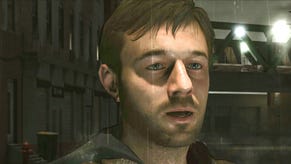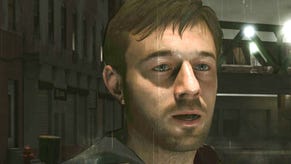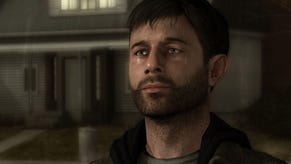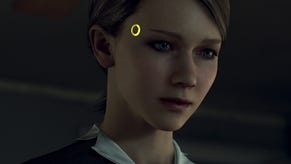Heavy Rain
Send in the clouds.
Quantic Dream's last game, Fahrenheit, featured an interactive introduction where director David Cage introduced the concept and controls, but Heavy Rain doesn't need any such thing. The range of flicks, motions and holds becomes an intuitive shorthand for the actions they set in motion, in a way that a more traditional control scheme would be unable to match without praying on your patience and muscle memory.
When events pick up pace in particular scenes - fights, chases, even driving - the game flies closer to the dreaded "quick-time event", prompting you to react quickly as the characters are being forced to do likewise, but rather than warranting criticism this is consistent with Heavy Rain's goals: unpredictable events should have uncertain outcomes, while scenes in which characters have time to think should allow for thinking time. The reaction-based situations might still appear harsh, however, were it not for the way the game treats failure: missing a prompt may mean you see different events that lead to the same outcome, or the outcome may change, but the game won't be over, and the story it continues to tell will be no less interesting or affecting.
Games that encourage personal alignment usually do so very overtly, with meters and rewards and Dark Side points, and those who feel this approach actually discourages individuality - setting players on a path they worry about losing out if they stray from - will also enjoy the way that Heavy Rain reduces your current "status" to a footnote through the strength of its narrative and diversity of outcomes. The differences are subtle, and the game's anticipation and interpretation of your actions is intelligent: you can lose a mock lightsaber fight with your kids and they love you more, and you can reject someone's advances in a way that strengthens the bond you share.

Director David Cage has tried to distance Heavy Rain from Fahrenheit - a game that struggled to keep its narrative feet on the ground, bouncing through multiple conspiracies until it could be difficult to recall what was going on - but while Heavy Rain is grounded and lean by comparison, Cage's interest in the mental state of its protagonists persists with mixed results. Holding one of the triggers presents a swirl of the current character's thoughts and allows you to listen to one, but the game is arguably more mysterious and attractive, and no less playable, if you ignore this. Consider it a hint system, perhaps.
Other ideas, built around Ethan Mars' fear of being in crowds and the after-effects of his head injury, are more successful, while Norman Jayden's battle with addiction to fictional drug Triptocaine proves a useful plot device on a couple of occasions, as well as an interesting way of shifting the narrative sands beneath events in his life. Heavy Rain also deals with psychological trauma during formative years, and while the outcome of that particular thread is a touch simplistic, it pays off.
Elsewhere though there is evidence of actors speaking in their second language from time to time, while clichés in dialogue are never too far away, and a few scenes designed to deliver vital clues to certain members of the cast perhaps try a little hard to justify themselves. Paige and Jayden's respective self-contained encounters with a former doctor and a dodgy junkyard owner are tense and exciting, but their villains are transparently evil in a way that stands out against the subtlety evident in other areas. Meanwhile, a few of the more domestic scenes have the opposite problem, offering only menial tasks to perform while the story develops around them.








